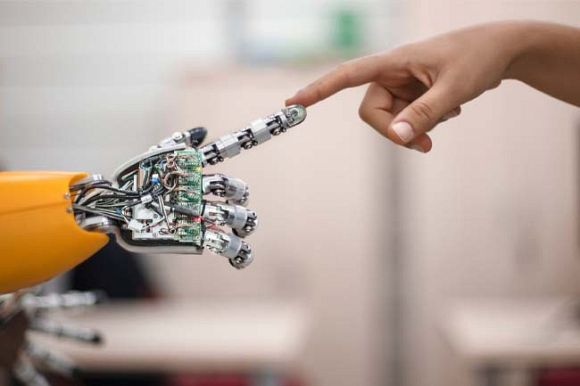A global trend of societies embracing mediocrity and eschewing free thought could be countered by AI-powered technology, writes Paul Budde.
I RECENTLY FOLLOWED a lecture on the Spanish philosopher José Ortega y Gasset and was particularly struck by his critique of “mass man”. as described in his book, The Revolt of the Masses.
In this work, Ortega provides a sobering perspective on the challenges facing modern society. His concept of mass man depicts a collective mindset that dismisses intellectual rigour, thrives on entitlement, and rejects the cultural and intellectual foundations that sustain civilisation. This critique resonates strongly in today’s polarised and media-saturated world, where low-quality input often shapes political, social and economic discourse.
To better understand Ortega’s ideas, it’s helpful to outline his core critiques of mass man.
Ortega warns of the following:
- a rejection of intellectual and cultural foundations, where mass man benefits from civilisation’s advancements without valuing or understanding their roots;
- a sense of entitlement without a corresponding sense of responsibility or contribution to society’s betterment;
- the passive consumption of ideas, avoiding critical engagement and intellectual curiosity;
- a preference for mediocrity and uniformity over individuality and excellence;
- a distrust of expertise and an oversimplification of complex issues;
- apathy towards civic responsibilities, undermining societal cohesion;
- a rise of narrowly focused specialists who lack the broader wisdom to guide society; and
- hostility towards change and innovation, clinging to outdated norms.
These critiques remain highly relevant today. With this foundation, the question becomes: how can we counteract the rise of mass man while fostering a society that values intellectual engagement, civic responsibility and thoughtful progress?
As I often do, I shared my reflections on this topic with friends and family members who also have an interest in social issues. My brother Rob, who lives in Italy, recognised these developments and suggested that artificial intelligence (AI) could perhaps help counteract some of these negative trends. This idea really set me thinking.
However, when I started to write the article It ended up far too long, so with suggestions from a few colleagues, I created a somewhat different format this time so I could still cover all the points I wanted to make.
Addressing Ortega’s critiques
Ortega’s analysis provides both a warning and a guide. Counteracting the influence of mass man requires actions across various domains, from education to technology, leadership and community engagement.
Education
Ortega’s concerns highlight the critical role of education in fostering an understanding of cultural and intellectual foundations.
Education should:
- emphasise history, philosophy and the arts to help individuals appreciate the roots of our civilisation; and
- equip individuals with critical thinking skills to challenge entitlement and passivity.
AI-powered educational tools can further enhance this process by making learning more accessible and personalised, tailoring content to address gaps in knowledge or critical thinking.
However, education’s role cannot be underestimated and mass man’s influence often leads to financial cuts in this sector, as its value is dismissed in favour of short-term priorities.
Technology
Technology, while exacerbating the passive consumption of ideas, also offers powerful tools to counter this trend:
- AI tools: Artificial intelligence can assist critical users in identifying credible information and flagging misinformation, supporting organisations that advocate for holistic approaches to complex societal issues.
- Content prioritisation: Responsible social media platforms could redesign algorithms to promote evidence-based, thoughtful content rather than sensationalism, reducing the impact of echo chambers.
- Digital literacy programs: AI can help create interactive learning tools that teach individuals how to critically assess online content, boosting digital literacy.
As I have mentioned before, technology also plays a crucial role in building smart communities, where citizens are empowered through the integration of digital tools to solve local problems, foster sustainability and enhance social cohesion. Smart cities demonstrate how grassroots innovation and technology can work together to counteract mass man’s apathy and passivity.
Civil responsibility
Mass man’s apathy towards civic duties undermines societal values. Rebuilding these values requires:
- schools and community programmes to emphasise informed voting, public debate and active civic participation. Here again, technology and AI can play a positive role by simulating public debates, promoting civic education and providing platforms for engagement; and
- governments and organisations to create forums for constructive, respectful debate, both online and offline, with moderation to prevent hostility. AI-driven moderation tools can ensure these forums remain inclusive and productive.
Leadership and expertise
Ortega’s critique of narrowly focused specialists and uninformed leaders highlights the need for a broader approach to leadership:
- leadership education should include philosophy, history and ethics alongside technical training, cultivating broad perspectives and deeper understanding; and
- expert advice must be transparent, peer-reviewed and open to public scrutiny to rebuild trust in institutions.
Technological tools such as data visualisation platforms can make expert recommendations more accessible and understandable to the public, fostering trust and transparency.
Empowering the individual within the collective
Ortega’s dictum, ‘I am myself and my circumstances’, resonates strongly with me, and emphasises the interplay between individual freedom and societal structures.
Building a culture that values individual agency requires:
- encouraging individuals to take ownership of their education, biases and contributions to public discourse; and
- supporting grassroots organisations to empower communities in solving local problems. These initiatives, often driven by technological innovation, demonstrate how individuals can influence collective progress.
In smart communities, individuals and groups work together to design solutions to local challenges using digital tools. These communities exemplify how technology can amplify individual agency while strengthening collective progress.
What’s next?
Ortega’s insights provide a framework for reimagining how societies can navigate the influence of mass man. Countering this mentality is not about suppressing popular will but elevating it through education, dialogue and innovation. By investing in intellectual and civic infrastructure, leveraging technology responsibly and fostering thoughtful leadership, societies can cultivate a culture where ideas thrive and informed participation drives progress.
I also believe that some countries are better positioned to take a leadership role in these developments, as the influence of mass man tendencies has not yet significantly permeated their societies. Australia, New Zealand, Canada and the Scandinavian countries come to mind in this context. I also strongly believe that cities – being the strong social and economic foundations of modern societies – can play a key role in reversing the mass man tendency.
This endeavour demands a collective commitment to reason, dialogue and creativity. Only by working together can we transcend the perils of mass man and move toward a future that honours Ortega’s vision of a vibrant, thoughtful society.
Paul Budde is an Independent Australia columnist and managing director of Paul Budde Consulting, an independent telecommunications research and consultancy organisation. You can follow Paul on Twitter @PaulBudde.
 This work is licensed under a Creative Commons Attribution-NonCommercial-NoDerivs 3.0 Australia License
This work is licensed under a Creative Commons Attribution-NonCommercial-NoDerivs 3.0 Australia License
Support independent journalism Subscribe to IA.

Related Articles
- Intelligent systems depend on fusion of biology and technology
- Nightshade empowers artists in the battle against unauthorised AI theft
- Intuition key to AI being a tremendous force for good
- AI holds promising future for quantum genetics
- Environmental balance: It's possible with the gift of AI















